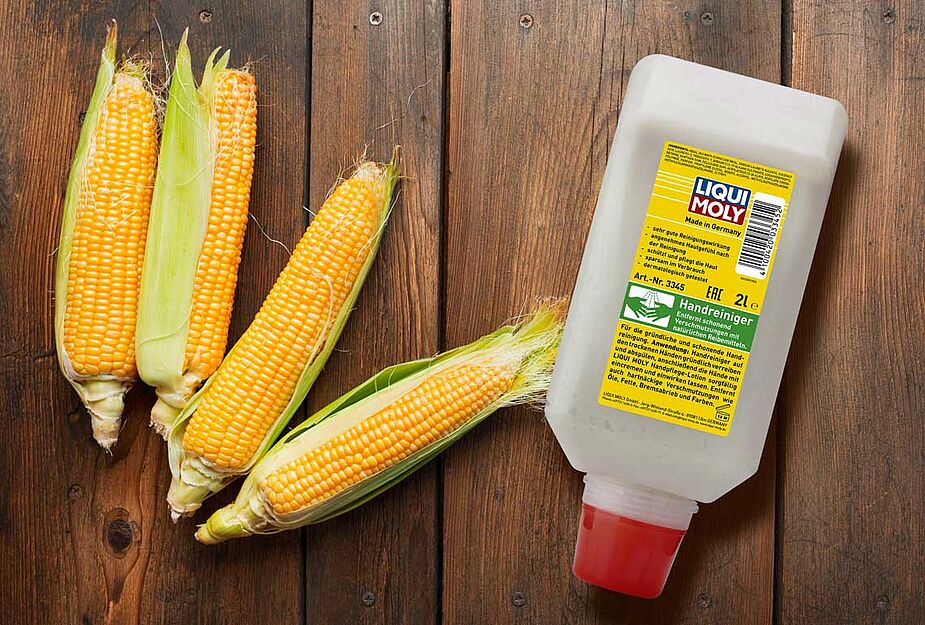- 11/27/2018
Hand cleaner is now more environment-friendly
November 2018 – LIQUI MOLY has made its hand cleaner more environment-friendly. The new formula used by the German automotive chemicals specialist does without abrasives made of microplastic. Instead a biological abrasive is used: maize cob meal.
Skin care is important, especially in jobs where the skin is subject to stress. This certainly applies in the car trade. Skin disease is the foremost work-related illness and can even cause work incapacity. This is why protective measures such as hand washing are so crucial. The LIQUI MOLY hand cleaner is especially mild, skin-neutral and highly effective: it even removes heavy soiling such as oil, tar, bitumen and printing ink.
And it is not just gentle on the skin: thanks to a new formula, it is now more environment-friendly, too: it does without abrasives made of plastic. Depending on the type and density of the plastic, it is possible for so-called microplastic to find its way into the natural water cycle via waste water, which means it can potentially end up in the human food chain. In fact the previous LIQUI MOLY hand cleaner formula was harmless because its abrasives are made of polyurethane and have a higher density than water, which means they are eliminated in sewage treatment plants. “But for our new formula we deliberately opted for maize cob meal – a biological abrasive agent,” explains David Kaiser.
Maize cob meal offers benefits as compared to walnut shells, which are a commonly used biological abrasive. “The shells can be sharp-edged when used as an abrasive, so they are less gentle on the skin as compared to meal,” explains the LIQUI MOLY head of development. What is more, the walnut shells have to undergo an elaborate chemical procedure in order to reduce the fat content of the product and increase its pH value. This is done by means of bleaching using hydrogen peroxide and soaking in alkaline solution. “So the maize cob meal is definitely the preferable ecological option,” says David Kaiser.
Since the meal comes solely from threshed maize cobs, there is no wastage of animal feed or nutritional resources. “This is a key aspect when selecting a biological abrasive,” says the LIQUI MOLY expert.




